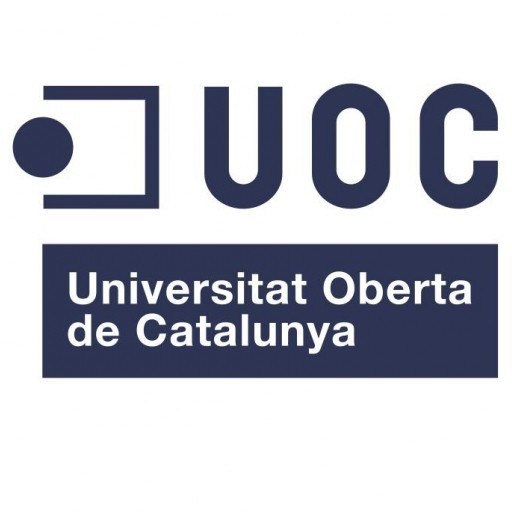Photos of university / #univcadiz
The Bachelor’s Degree in Viticulture in Warm Climates at the University of Cadiz offers a comprehensive education designed to prepare students for successful careers in the wine industry, with a particular focus on regions characterized by warm and Mediterranean climates. This program combines theoretical knowledge with practical skills to equip students with a deep understanding of vine cultivation, vineyard management, and the specific challenges associated with producing high-quality grapes in warmer environments. Students will explore various aspects of viticulture, including soil science, plant physiology, pest and disease control, irrigation management, and sustainable cultivation practices suited for warm climates. The curriculum emphasizes the importance of environmental conditions on grape development and wine character, providing students with the expertise necessary to optimize yield and quality under diverse climatic scenarios.
Throughout the program, students will gain hands-on experience through laboratory work, vineyard visits, and internships with industry partners, enabling them to apply theoretical concepts in real-world settings. The program also covers wine production processes, analytical techniques, and quality assurance, offering a holistic approach to viticulture and oenology. Emphasis is placed on developing skills in research, data analysis, and technological applications relevant to modern vineyard management. Graduates will be prepared to work in various roles, including vineyard management, agricultural consulting, sustainable farming practices, and wine production enterprises, specifically tailored to warm climate regions around the world.
The University of Cadiz’s strategic location in a renowned viticultural area provides students with unique opportunities to engage with local wine industries and participate in industry-led projects. The program fosters an international perspective, encouraging students to analyze global trends in viticulture and adapt practices to different warm climate zones. Moreover, interdisciplinary collaboration and innovative learning methods ensure that graduates are competitive in the global market. With a curriculum aligned with current industry needs and scientific advancements, this degree aims to cultivate skilled professionals capable of advancing sustainable viticulture in warm climates, promoting economic development and environmental stewardship in the wine sector.
The Viticulture in Warm Climates program at the University of Cadiz offers an in-depth exploration of the science and practice of grape growing and winemaking in regions characterized by warm temperatures and unique climatic conditions. This comprehensive curriculum is designed to equip students with the knowledge and skills necessary to thrive in the viticulture industry, focusing on the specific challenges and opportunities presented by warm climate environments. Throughout the course, students will study the principles of vine biology, soil management, and climate adaptation techniques essential for producing high-quality grapes. The program emphasizes sustainable practices, integrated pest management, and innovative irrigation methods tailored to warm regions. Students will gain practical experience through fieldwork in vineyards located in southern Spain, allowing them to observe firsthand the effects of temperature, sunlight, and soil on vine growth and grape quality. The curriculum also covers vineyard design and layout, the impact of different grape varieties suitable for hot climates, and the latest advances in technology that improve productivity and sustainability. Additionally, students will learn about the harvesting process, post-harvest handling, and the influence of climatic factors on wine profile development. Special modules address the economic and environmental aspects of viticulture in warm regions, preparing graduates to contribute effectively to the industry, whether in vineyard management, research, or entrepreneurship. By the end of the program, students will have developed a thorough understanding of how to optimize viticultural practices in warm climates to produce exceptional wines, ensuring sustainability and profitability. The program combines theoretical lessons with hands-on training, fostering innovation and critical thinking in a rapidly evolving agricultural sector. Graduates will be well-prepared to pursue careers in viticulture, winemaking, consulting, and agricultural research focused on warm climate regions worldwide.
The Viticulture in Warm Climates program at the University of Cadiz is designed to provide students with comprehensive knowledge and practical skills related to the cultivation and management of grapevines in hot and arid environments. Admission requirements typically include possession of a high school diploma or equivalent qualification, demonstrating a strong background in biological sciences, chemistry, and environmental studies. Prospective students may need to submit official transcripts, proof of language proficiency (such as TOEFL or IELTS scores), and a completed application form. Some prerequisites may include prior coursework in plant biology, agriculture, or related disciplines, ensuring students have foundational knowledge relevant to viticulture. Additionally, applicants might be required to attend an interview or provide a personal statement outlining their motivation and interest in viticulture in warm climates. Enrolment is contingent upon meeting the academic and language criteria established by the university. The program encourages applicants from diverse backgrounds but values candidates committed to sustainable agricultural practices and environmental stewardship. International students are welcome and must comply with visa regulations and language requirements specified by the university. Overall, admission to this program is based on academic merit, relevant experience, and the demonstrated interest in specialized viticultural techniques suited to warm climate conditions.
Financing studies for the Viticulture in Warm Climates program at the University of Cadiz are designed to accommodate the diverse needs of students coming from different backgrounds and circumstances. The university offers a range of financial aid options, including scholarships, grants, and loans, to support students throughout their academic journey. Scholarships are available based on academic merit, financial need, or specific criteria such as research excellence and contribution to the university community. Applicants are encouraged to consult the university’s official scholarship portal for detailed eligibility requirements and application procedures.
In addition to institutional support, students may also explore external funding sources, including government grants and private foundations that offer financial assistance to students pursuing higher education in agricultural sciences. The university collaborates with local and regional agencies to facilitate access to financial support programs aimed at fostering agricultural innovation and sustainability, which are directly relevant to viticulture studies.
The university also provides information on work-study opportunities, allowing students to work part-time on campus or in affiliated vineyards and agricultural businesses. Such employment not only offers financial support but also valuable practical experience in the field of viticulture. Furthermore, the university’s Financial Aid Office offers personalized guidance to help students plan their finances effectively, ensuring that they can focus on their studies and research without undue financial stress.
International students should inquire about specific scholarships available for foreign applicants, as well as potential support for visa and relocation expenses. The university prioritizes accessible education and endeavors to minimize economic barriers by providing comprehensive financial planning resources.
Overall, the financial support system at the University of Cadiz aims to facilitate a smooth academic experience for students enrolled in the Viticulture in Warm Climates program, fostering a learning environment grounded in sustainability, innovation, and excellence.
The Viticulture in Warm Climates program at the University of Cadiz offers a comprehensive study of grape cultivation and wine production tailored to regions with high temperatures and specific climatic conditions. This program aims to equip students with both theoretical knowledge and practical skills necessary for managing vineyards in warm environments, ensuring optimal grape quality and sustainable practices. Covering fundamental concepts of viticulture, the curriculum includes modules on plant physiology, vineyard management, pest and disease control, and irrigation techniques suited for hot climates. Students also explore the impact of climate and soil on grape varieties and wine profiles, allowing for a nuanced understanding of how to adapt cultivation methods to ensure high yield and quality. Significant emphasis is placed on eco-friendly and sustainable viticultural practices, highlighting innovative techniques to reduce water consumption and mitigate environmental impact. The program often involves laboratory work, field visits, and internships with local vineyards, offering hands-on experience critical for practical understanding. Students learn about modern viticulture technology, including sensors, data analysis, and precision agriculture tools that help optimize vineyard management in warmer zones. Additionally, the curriculum discusses the socio-economic aspects of viticulture in warm climates, including market trends and export opportunities specific to southern Spain's wine industry. Graduates are prepared for careers in vineyard management, wine production, consulting, and research, capable of applying sustainable practices in hot climate viticulture. The program is ideal for those interested in expanding their expertise in viticulture adapted to climate change challenges and the specific needs of warm-weather wine regions. This educational pathway underscores the importance of regional characteristics in viticulture and aims to foster innovation and sustainability in wine-growing areas of Spain and similar climates globally.




